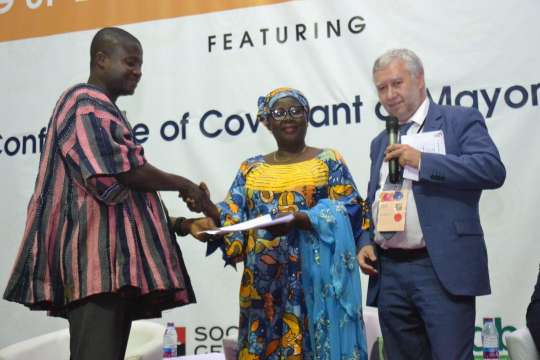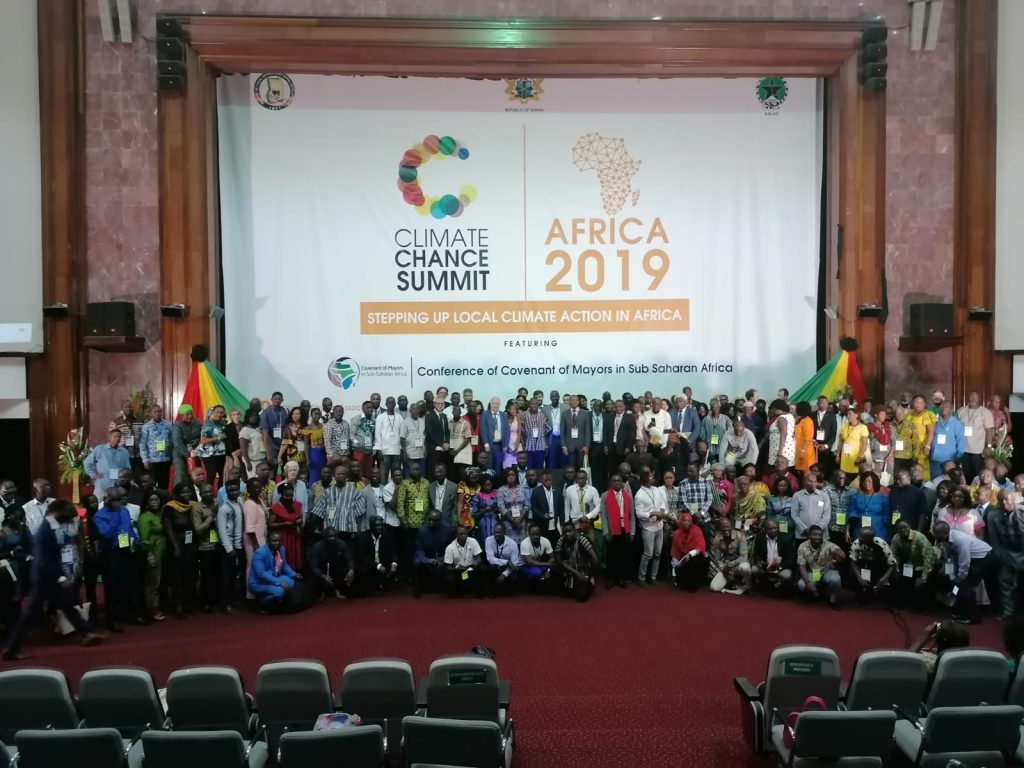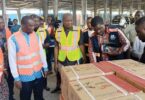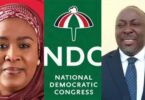In the wake of the effects of climate change across the world especially the Africa continent, participants at the just ended Climate Chance Summit adopted the Accra Declaration in Accra.
The Accra Declaration calls on States to create an environment that encourages local actions as well urges banks to facilitate the access of finance for local governments and non-state actors.
Furthermore, proposes a new approach to the necessary reassessments of national commitments to reduce greenhouse gas emissions, based on the contribution of local authorities.
The adopted Declaration acknowledges the importance of the Climate Chance Summit – Africa, an annual meeting of African non-state actors, by proposing that messages delivered by each Summit should now be delivered under the umbrella of the #AccraClimateDialogue.
This year Climate Chance Summit 2019 is the second African Climate Chance Summit, organised from 16 to 18 October 2019 in Accra, Ghana.
Meanwhile, representatives of the African local and regional governments and non-state actors have presented a declaration to the Minister of Local Government, Hajia Alima Mahama towards the fight against climate change for onward presentation at the upcoming United Nations climate talks in Santiago, Chile in December 2019.
Presenting the declaration to the Minister, President of the Local Association of Local Government, Mr Bismark Baisie Nkum indicated that, local government representatives do subscribe to the United Nations’s Secretary General’s alert on climate emergency, therefore called on all stakeholders to act in order to avoid worsening the situation of global warming and to address the challenges brought about by climate change.
And also called on African nations attention to the need prioritize climate actions focused on adaptation to climate change and access to energy believing mitigation actions would be addressed through the solutions proposed.
“We recommend therefore a balance in funding between climate actions addressing mitigation and adaptation and further recommend that the recourse to clean energy sources such as solar and wind energy be prioritised when defining strategies to bridge the energy gap in Africa”, he noted.

The Local Association of Local Government President also proposed the involvement of local and regional governments in the implementation of this strategy.
The local Representatives used the ocassion to call on African national governments to provide an enabling environment for local and regional governments, and non-state actors, business, NGOs and academia to create the conditions for enhanced local climate actions as well for the localisation of climate finance.
Stressing, “we therefore call on the Green Climate Fund to create a window for local and regional governments, and to the African Development Bank through the Urban and Municipal Development Fund to support local and regional governments in the implementation of their climate initiatives and actions”.
In order to build the capacity of African cities and sub national governments and non-state actors to be able to prepare and submit eligible projects to the climate finance institurions, the Local Association of Local Government made a request that, local and regional readiness programme be established, funded and implemented using the national associations of local and regional governments and their continental umbrella organisation, the United Cities and Local Governments of Africa (UCLG Africa).
“We support the proposal by UCLG Africa Climate Task Force to initiate a bottom-up approach to the revision process of the Nationally Determined Contributions (NDCs) starting with the elaboration of locally determined contributions (LDCs) feeding into the NDCs”, they acknowledged.
Urging that, “This approach should be disseminated through the national associations of local and regional governments and UCLG Africa, in order to accelerate ownership of the climate agenda by all relevant stakeholders, and ensure alignment of climate actions at all levels of government, while at the same time addressing coordination and coherence within the framework defined by the Katowice Rule book.
Therefore humbly called on the government of Ghana to champion this approach at the upcoming UN COP 25 and Glasgow COP 26.
“We strongly encourage African local governments to join the Covenant of Mayors in Sub-Saharan Africa, as the only movement driven by the local governments, by implementing effective actions on energy access, adaptation and mitigation and by setting ambitious targets through their local climate action plans”.
As well supports the annual African Climate Chance summit “as pre-COP” of the non-state actors and local governments to formulate and deliver their messages at the international level, hence called this dialogue, “Accra Climate Dialogue.
This declaration they acknowledged is a call on national governments, the African Union through the Committee of African Heads of State on Climate Change (CAHOSCC), and the international community, in particular the institutions within the global climate ecosystem, to support the Accra Climate Dialogue.
Source: Ishmael Barfi








